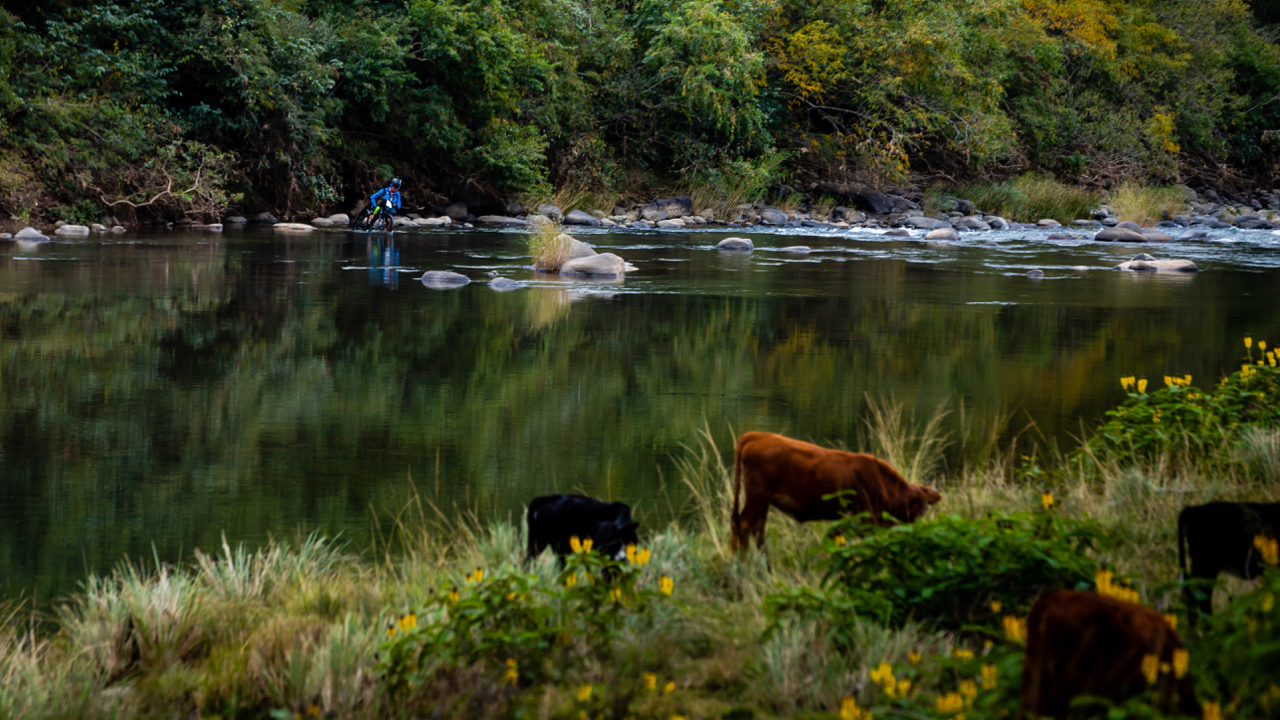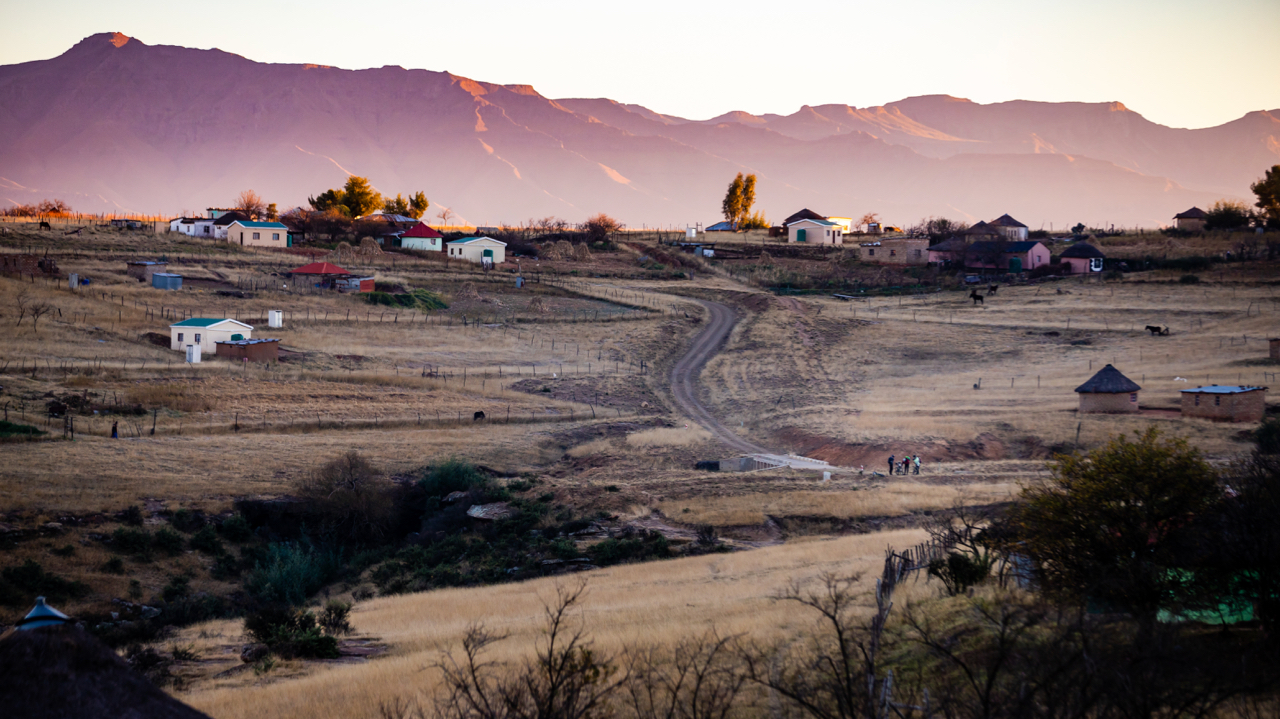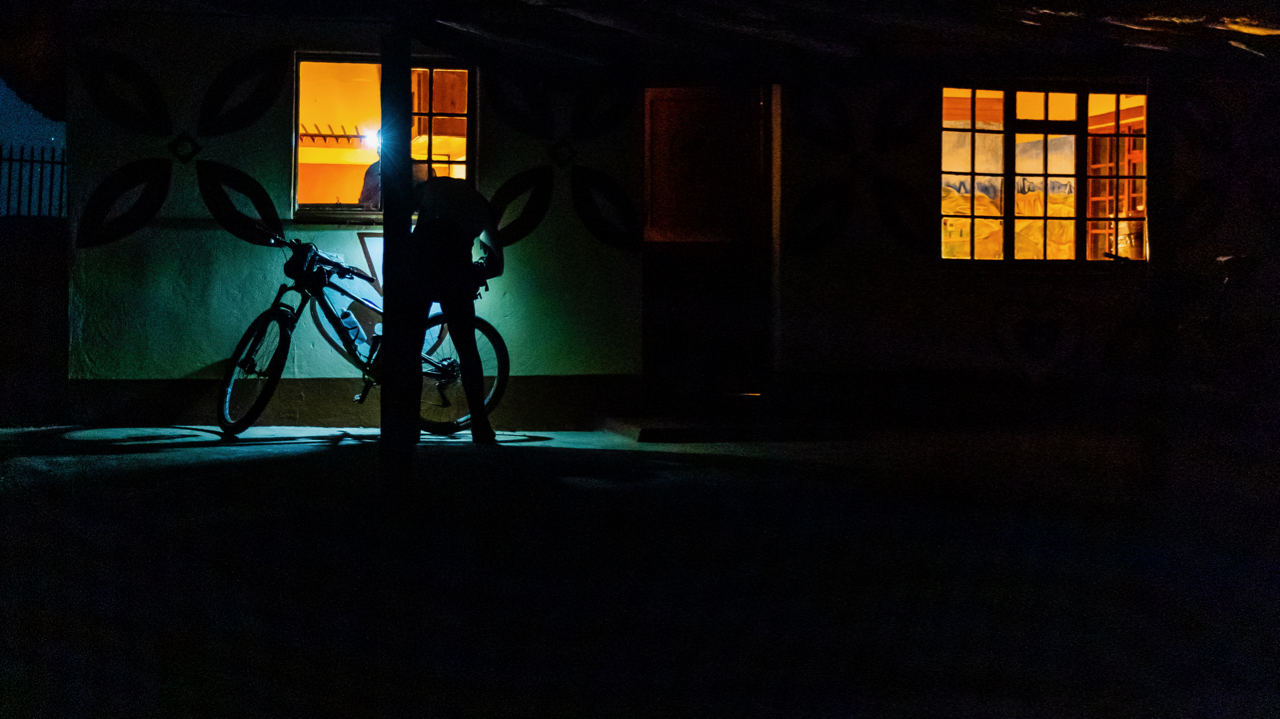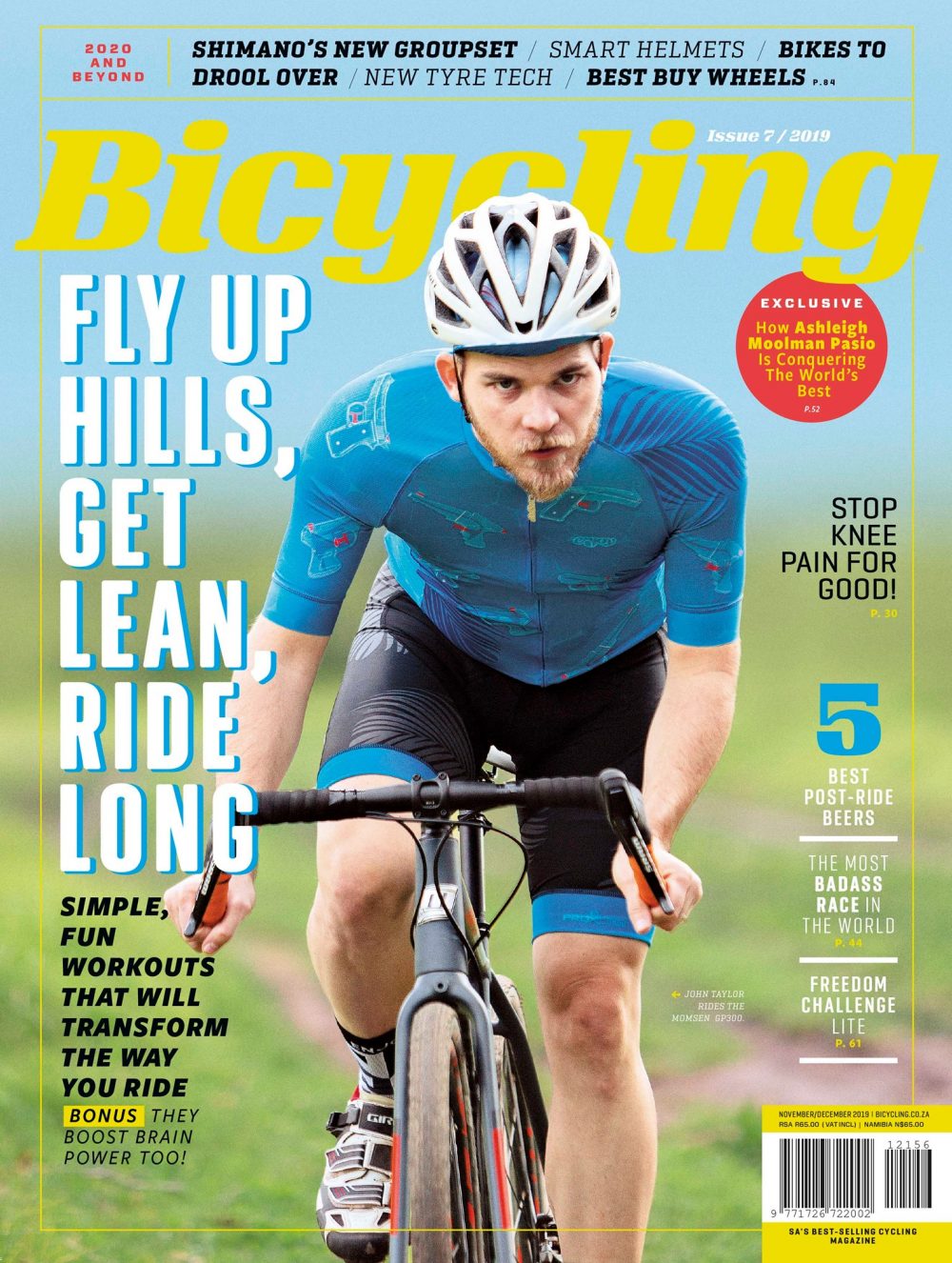The Freedom of Desirable Difficulties and Simple Pleasures
The Freedom Challenge Race to Rhodes, with 475km to cover in six days, is an event that will change the way you see your world.
The Freedom Challenge Race to Rhodes, or RTR, is the pared-down version of the epic 2300km Race Across South Africa. But with 475km to cover in six days, it’s an event that will change the way you see your world.
[This feature appears in the November-December issue of Bicycling SA, on sale now]
As I trudged up the steep, rocky incline of the path, my bike on my shoulder, the sun beating down on my neck and my cycling cleats making irritating clanking noises as they collided with stones every time I took a step, I thought about how different this experience was from what I usually expect when I go out to ride my bike.
I’m mostly a ‘fair-weather’ rider. I like to know exactly where I’m going before I head out (preferably with GPS to help guide me); I calculate precisely how long it should take; I examine the weather forecast, so I can dress appropriately; and if it’s likely to be too hot, cold, wet, miserable or dark, I usually opt for the indoor trainer instead.
But here I was, late on just the second day of a planned 475km, 6-day race (read: ‘ride’) from Pietermaritzburg to Rhodes, covering some of the gnarliest and most difficult-to-navigate terrain one could imagine, as a participant in the Freedom Challenge Race to Rhodes.
The previous day, I’d spent 11 tough hours on the trail – three of which entailed bushwhacking through the thick, overgrown, thorny brush at the bottom of the Umkomaas Valley, and another two climbing the long, steep ascent out of that same valley. On this, the second day of my ride – having already spent eight gruelling hours on the trail – I still had at least four more to go to reach the second overnight stop at Ntsikeni Nature Reserve, in the foothills of the Drakensberg in southern KwaZulu-Natal.
But here I was, late on just the second day of a planned 475km, 6-day race (read: ‘ride’) from Pietermaritzburg to Rhodes
And the path seemed to just keep going up; I felt like we’d been climbing forever. Everything about what I was doing was tough, challenging, and uncomfortable. For several hours already I’d been in a deep pain cave.
Then, suddenly, I came to a realisation: this was actually awesome, a real privilege: “I’m out in the middle of nowhere,” I said to myself, “seeing parts of the country that most South Africans will never get to see. I’m suffering a lot, but it’s making me feel alive, and focused.”
How could I reconcile this, I wondered? How could I feel so tired, so depleted, so uncomfortable, and so uncertain about what I still needed to do – yet also so excited and engaged?
It was then, in my mental wanderings, that I was reminded of the concept of ‘desirable difficulties’: the idea from learning theory suggests that when a task is extremely challenging and difficult – to the point, usually, that it’s quite uncomfortable – it often generates new insight, perspective and understanding, to the point of actually becoming enjoyable.
Here I was experiencing this for real, with my bike, on the trail.
The hardships of the Freedom Trail – hike-a- biking, navigating, taking many hours to cover just a few kilometers, arriving at support stations after dark and then leaving before light, getting hungry, thirsty and tired – all made the experience rich, intense, and dare I say, fun.
They prompted me to learn things about myself that I wouldn’t otherwise have learned. They engaged me, forced me to be present and to focus on the task at hand. They made me feel alive!

Extreme Difficulties
Coming to this realisation, that the extreme difficulties of the trail were actually quite desirable, quickly (and positively) changed my perspective on the Freedom Trail experience. My fear of riding in the dark was transformed into a new challenge; the mission of hiking with my bike up sheer mountain slopes became an opportunity to overcome something really difficult, and I began to experience the pure joy of just riding in the most remote parts of South Africa.
From that point onwards on the trail, I began to look forward to the adversities that lay ahead, as each represented a chance to learn, grow and engage more deeply with my surroundings.
And there was no shortage of them still to come. Having trudged into the second overnight support station after 12 hours on the trail, just as the sun was setting on day two, we woke up to cold rain on day three. Setting out on our bikes in the pre-dawn pitch black, with raindrops clouding the light from our headlamps, and the cold biting through my gloves and socks, it was clear I had to seriously embrace the idea of ‘desirable difficulties’.
By the time I reached the lunch stop at Glen Edward, thanks to the combination of wet and cold, I could no longer feel my feet or hands. I peeled off my socks and gloves and lay on my back, hands and feet stretched out to absorb the warmth from the anthracite heater in the farmer’s living room, trying to thaw out.

But with some delicious soup in my system and some vague feeling back in my hands and feet, I went back out on the trail with my four riding partners – who I’d never met before the race, but with whom, due to this shared experience, I was quickly forming a strong bond.
We made our way up and down mountains, through thick groves of wattle and across chilly rivers; we stopped for Coke and chips at a spaza shop in the absolute middle of nowhere; and eventually, just as darkness was descending, we arrived at Masakala, a simple guest house rondavel in a rural African village.
Wooden Bunks
The Masakala guest house wasn’t fancy by any stretch of the imagination: two wooden bunk beds per room, a single bathroom for all the guests staying there to share, a small and spartan dining area with a pine table and chairs, and a tiny kitchen where our hosts prepared food.

We received a basic yet comforting meal of meat, potatoes and spinach; and as I crawled into a warm bed that night, with a full stomach, lying under the heavy Basotho blanket provided by our host, it struck me that out on the trail, simple things are transformed into wonderful pleasures.
Most people who partake in the Freedom Challenge are relatively well off: we have (or have had) good jobs, we can afford luxuries like a meal out or time away at a hotel; generally we don’t want for much. In any other circumstances, if we were required to sleep in a bunk bed or share a tiny bathroom with multiple others or have a cold shower, we would probably complain; but when out on the trail, no one complains. In fact, these are the pleasures of the Freedom Trail.
Finish the Race to Rhodes with Greg in the November-December issue of BicyclingSA, on sale now.

READ MORE ON: endurance events Freedom Challenge touring

